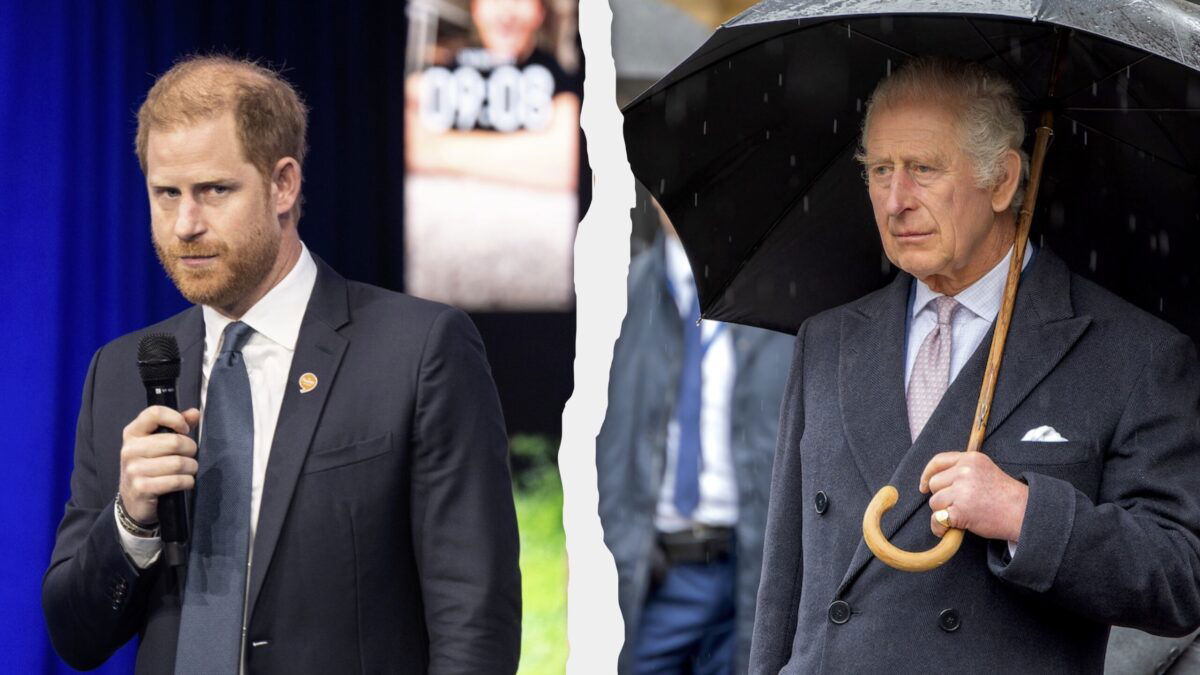Family rifts go much deeper than just personal disputes between friends. They are emotional earthquakes that rip through lives, leaving lasting psychological, physical, and social scars.
The highly publicised estrangement between Prince Harry and King Charles III, which has intensified since Harry and Meghan Markle stepped back from royal duties in 2020, and has uncovered a poignant case study of the devastation caused by family conflicts. Since the passing of Queen Elizabeth II, the British royal family look further apart than ever. Can they ever repair the damage done?
According to research at the Cornell University, sociologist Karl Pillemer says 68 million people are estranged from a family member in the United States alone, and the amount isn’t much different in European countries. The emotional toll runs deep: estrangement provokes “ambiguous loss”, a term coined by therapist Pauline Boss, where the absent family member remains like a ghost in the background, psychologically present, continuing a desperate feeling of unresolved grief, anxiety, and depression in all family members.
Most Read on Euro Weekly News
Harry’s public disclosures against King Charles hurt
Harry’s public disclosures in his book Spare (2023), the 2021 Oprah interview, and the Netflix docuseries have deepened the emotional toll, with his May 2025 BBC interview expressing anguish over Charles’s refusal to talk, giving the excuse of “security disputes”. Charles, who is currently fighting cancer, reportedly feels extreme distress over the estrangement, as mentioned in Tatler (August 2025). The public nature of their conflict has only intensified the shame and scrutiny described by Karl Pillemer in his studies, while the potential loss of connection for Harry’s children, Archie and Lilibet, with their royal cousins is the typical collateral damage to extended family that many suffer.
The causes of family rifts are complex, often based on differences in values, a feeling of betrayal, or unmet expectations. Harry’s exit from royal life, defending his wife, and being moved by a desire for personal freedom, clash with Charles’s commitment to traditional royal duties.
Of course, there has been speculation about Meghan’s role, as reported by Marca (August 2025), which suggests her reluctance to return to the UK is like being a “gatekeeper”, complicating reconciliation efforts. Trust is always an issue. Royal insiders suggest that Charles and Prince William distrust Harry due to his public revelations and fear further leaks.
Does the public want reconciliation between the king and prince?
Public opinion is divided about reconciliation. In the UK, a May 2025 YouGov poll found 61 per cent view Charles positively, and 60 per cent in a Mirror survey (August 2025) expressed sadness over the rift, particularly given Charles’s health. Younger Britons (18–24) are more sympathetic to Harry, with 55 per cent viewing him positively, while only 29 per cent of those over 65 do, according to 2024 YouGov data.
Globally, publishers like Reuters (May 2025) say the rift is a tragedy and hope Charles will act as a father first, yet acknowledge William’s opposition as a hurdle. Despite this, only 20–30 per cent of Britons believe reconciliation is possible, from YouGov (2025), which reflects distrust in Harry’s intentions. His favourability is at only 28 per cent compared to William’s 74 per cent.
Can Harry and Charles reconcile?
Speculating on whether Harry and Charles will be able to repair their relationship requires weighing their unique circumstances. Pillemer suggests reconciliation could be possible through mutual compassion, establishing clear boundaries, and focusing on the present rather than past grievances. Successful cases in Pillemer’s study gradual trust-building, often after years of not talking to each other. Harry’s move away from tell-alls, as mentioned by Ingrid Seward (Fox News, August 2025), and his focus on charity projects, suggest a potential willingness to move forward and put the fight behind him.
His emotional plea in May 2025, which references Charles’s limited time left due to cancer, is in line with Pillemer’s finding that health crises can sometimes lead to reconciliation attempts.
Will they one day hug and make up?
Despite the hurdles, there are glimmers of hope. Charles’s small gestures, like a 2024 birthday message to Harry, and Harry’s WellChild visit suggest that both parties may desire a path forward. An excuse to be together again. Coleman’s research indicates that parents often initiate reconciliation, and Charles’s health could lead to action on Harry’s part. However, reconciliation may not mean a full return to royal duties but more a privately agreed easing of hostilities.
Recent reports, such as a July 2025 meeting between aides of King Charles and Prince Harry in London, indicate potential steps toward reconciliation, with sources suggesting “the time is right” for an olive branch to be extended. Harry’s public statements in May 2025 to the BBC also expressed his desire for reconciliation, mentioning his father’s cancer diagnosis and limited time left.
No betting houses are currently offering odds, but word has it that Harry has just turned down a meeting with his father. As the squabble continues, a monarchy’s divided subjects continue to wait.
